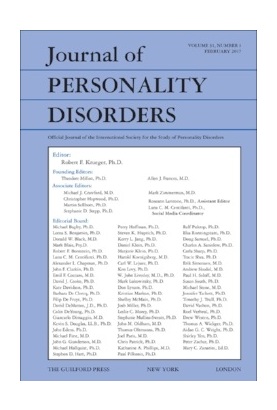FeatureD Publications
REVISITING THE WANDERING WOMB: OXYTOCIN IN ENDOMETRIOSIS AND BIPOLAR DISORDER
Oxytocin is famous because of its status as the ‘cuddle hormone’. More specifically though, oxytocin regulates social bonding and mothering behaviour in addition to having diverse functions in the brain and body. Through interacting with estrogen, oxytocin influences the cyclical movement of women’s uteri. High levels of oxytocin are observed in people with both bipolar disorder and in women with endometriosis, an often-painful reproductive condition that involves migration of uterine tissue beyond the uterus. Years ago, medical practitioners believed that the uterus could move around the body and cause distress. In this paper, we propose that there is a kernel of truth to this ancient belief: reproductive health and emotional well-being are intimately linked in women.
THE 'EXTREME FEMALE BRAIN': INCREASED COGNITIVE EMPATHY AS A DIMENSION OF PSYCHOPATHOLOGY
In psychiatry, mental illness is by definition problematic. Problems with social skills in autism or problems with motivation in depression are good examples. In this paper, my colleagues and I expand on the relatively novel idea that some mental illnesses are actually associated with - and perhaps even partially caused by - selective enhancements in certain domains. Our review of existing literature showed that mild depression is associated with better-than-average cognitive empathy, or 'mind-reading', while borderline personality disorder showed neither deficits or enhancements in this domain.
THE BORDERLINE EMPATHY PARADOX: EVIDENCE AND CONCEPTUAL MODELS FOR EMPATHIC ENHANCEMENTS IN BORDERLINE PERSONALITY DISORDER
In this paper, we reviewed 28 studies that investigated how people with borderline personality disorder (BPD) experience and recognize emotions and 'mind-read' in social interactions. Contrary to some lines of thinking, we found that there is evidence that people with BPD may have selective areas of social cognition that are elevated compared to people without BPD. Studies that were more realistic reported enhanced skills in BPD more often. This supports the paradox of borderline empathy, first outlined by psychoanalysts in the 1970s, because although people with BPD can be very socially aware and intuitive, they still have major challenges in maintaining healthy relationships.
HOW ARE AUTISM AND SCHIZOTYPY RELATED? EVIDENCE FROM A NON-CLINICAL POPULATION
In this paper, we tested the idea that autism and schizophrenia represent opposite extremes of human cognition. Generally speaking, it appears that people have two kinds of cognition: mechanistic cognition for interacting with your physical surroundings; and mentalistic cognition for dealing with people and social interactions. Several lines of evidence suggest that autism represents an over-development of mechanistic cognition and an underdevelopment of mentalistic cognition, while schizophrenia involves the opposite pattern. We studied autistic and schizotypal traits in a non-clinical population to see if this pattern exists in healthy people. After removing overlap between the two kinds of traits due to their shared effects on social functioning, it appears that people who more likely to endorse positive schizotypal traits ("everyday objects appear large or small") were less likely to endorse autistic traits ("I am fascinated by dates").



